How to use and buy cosmetics: How do they differ between Japan and other Asian cities? ‐ Asia Insight Report
- Release date: Mar 06, 2018
- 3377 Views
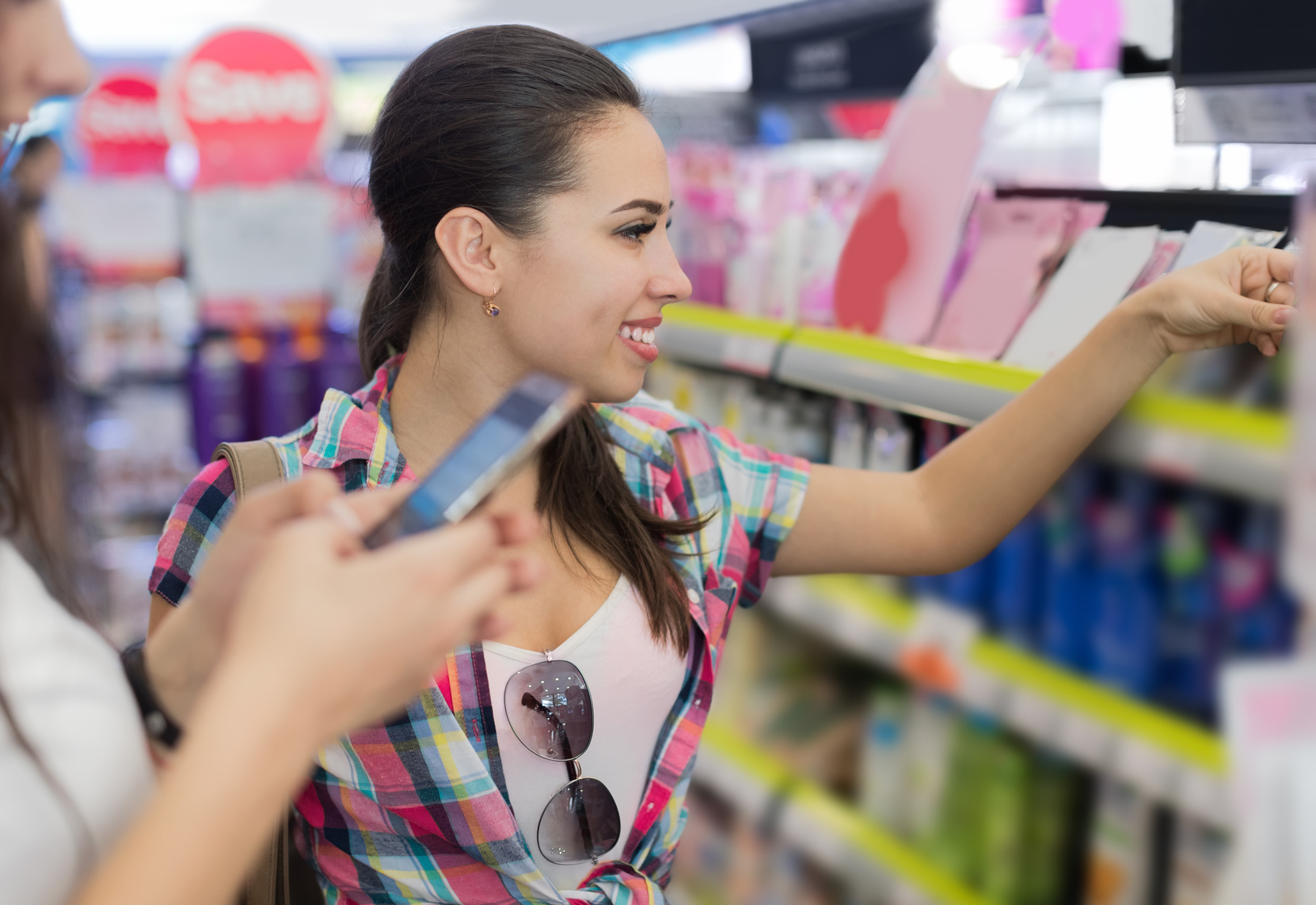
Asia Insight Research has conducted the following surveys
Shanghai (China), Bangkok (Thailand), Jakarta (Indonesia), Ho Chi Minh City (Vietnam), and Delhi (India).
Asia Insight Research conducted an online survey on beauty awareness among women in their 20s and 30s in five cities (Shanghai, China; Bangkok, Thailand; Jakarta, Indonesia; Ho Chi Minh City, Vietnam; and Delhi, India) and throughout Japan.
The survey was conducted mainly among people in SEC (Social-Economic Class) A and B, which correspond to high living standards in each country.
Where is the best place to apply both eye and lip makeup? Cosmetics Use in Five Asian Cities
First, let's compare the makeup habits of women in each city. Chart 1 shows the results of the use of makeup products side by side. (Chart 1)Chart 1
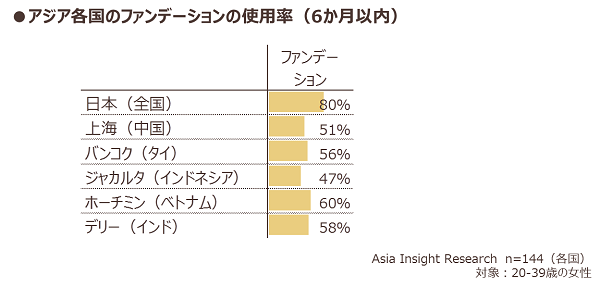
Next, let's compare the usage rates of eye makeup products and lip makeup products used for point makeup among cities. (Chart 2)
Chart 2
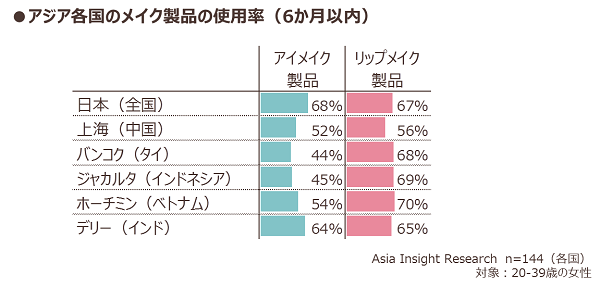
On the other hand, looking at Asian cities, Delhi has a similar trend to Japan, while in Shanghai, Bangkok, Jakarta, and Ho Chi Minh City, the use rate of lip makeup products is much higher than that of eye makeup products.
In India, people believe that makeup is a part of one's appearance and a sign of social status. This may be the reason why the use of eye makeup and lip makeup is almost the same in Delhi.
There are many reasons why the use of lip makeup products is higher in other cities. For example, in Thailand and Indonesia, natural makeup is popular, which is why fewer people wear makeup around their eyes. Another reason is that in Indonesia, people need to wash their faces every time they pray in Islam, so they only use lip makeup, which can be easily reapplied.
In these cities, the use of lip makeup is higher than the use of foundation. In these cities, the use of lip makeup is higher than the use of foundation, and there are many people who do not wear foundation, but only use lip makeup for ease of application.
Which cities are making the most progress in purchasing cosmetics online? Cosmetics purchasing channels in five Asian cities
So what are the different ways to buy cosmetics? Let's take a look at the basic cosmetics used to care for your skin. First, let's compare where they are purchased. (Chart 3)Chart 3
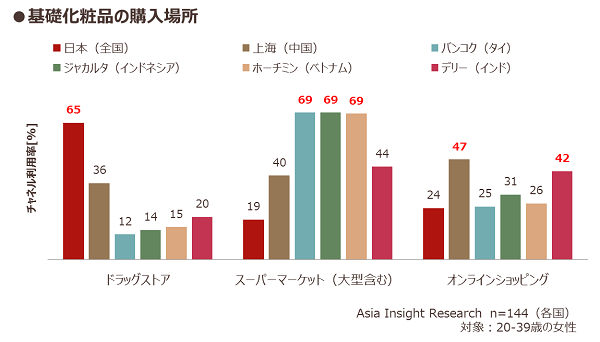
The results show that the use of drugstores in Japan is characteristically high, while in Shanghai and Delhi, the shift to online shopping is progressing, indicating the diversification of purchase channels.
Buying cosmetics in your own country or imported? Imported? What to consider when buying cosmetics
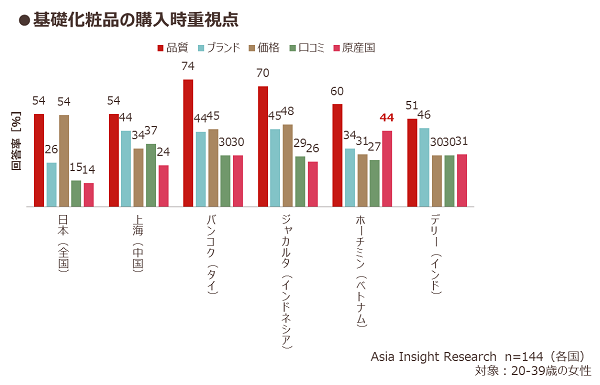
In Japan, where quality is guaranteed to a certain degree and "good products at a reasonable price" such as petit price cosmetics are highly valued, many people say, "I buy products based on their price without worrying about the brand. In Shanghai and Delhi, many people seem to say, "I don't care about the price as long as the quality is guaranteed by the brand. In Shanghai, word-of-mouth communication is also important.
In Shanghai, "word-of-mouth" was also more important than "price". This shows that word-of-mouth is more important in Shanghai than in other cities. As mentioned above, there are a lot of online shoppers, and the purchasing channels are becoming more diversified.
In Ho Chi Minh City, the country of origin was the second most important factor after quality.
The top three countries of origin for the cosmetics they want to use are shown in Chart 5.
Chart 5
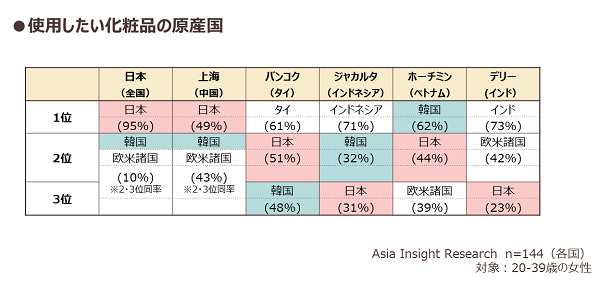
For Southeast Asian women, not just Vietnamese, the beautiful skin and hair of Japanese and Korean women are admired. Japanese and Korean products are preferred in Ho Chi Minh City, Bangkok, and Jakarta, partly because they are easier to obtain than Western brands.
Another reason why Korean products are preferred is the influence of Korea's national policy of tag-teaming between government and business. As in Japan, there has been a Korean boom in K-POP and movies in many countries, and it seems that this influence is still there.
Nevertheless, in many countries, homegrown cosmetics are still the preferred choice. For example, in Jakarta, where the majority of the population is Muslim (87%, according to the Ministry of Foreign Affairs website in 2013), there are few halal-certified cosmetics made overseas, and the home-grown brand Walder has the largest market share in terms of sales. In Delhi, the demand for herbal and ayurvedic cosmetics is increasing, and people prefer home-grown products that are compatible with these products. The fact that the products are rooted in the culture of the country seems to be a factor in their choice.
One of the reasons why Thai products are number one in Bangkok is that popular Japanese and Korean products are expensive and hard to afford. Since home-grown products ensure a certain level of quality, Bangkokians who place importance on price next to quality often choose home-grown products with lower prices.
The comparison of the actual conditions of cosmetics use and purchase in Asian cities revealed differences in culture, such as makeup behavior as a form of self-expression and makeup behavior related to religion, as well as differences in the shopping environment in which people live, such as online shopping and the quality of products available in the market. This analysis is based on the results of the Intage Group's annual Asia Insight Research survey and reflects the local knowledge of Intage Group members working in each country. Asia Insight Research seeks to clarify the actual conditions of living and consumption in Asian cities by listening to the consumption and usage of daily necessities, durable products, and services, as well as behavior and values related to daily shopping and information contact.
-
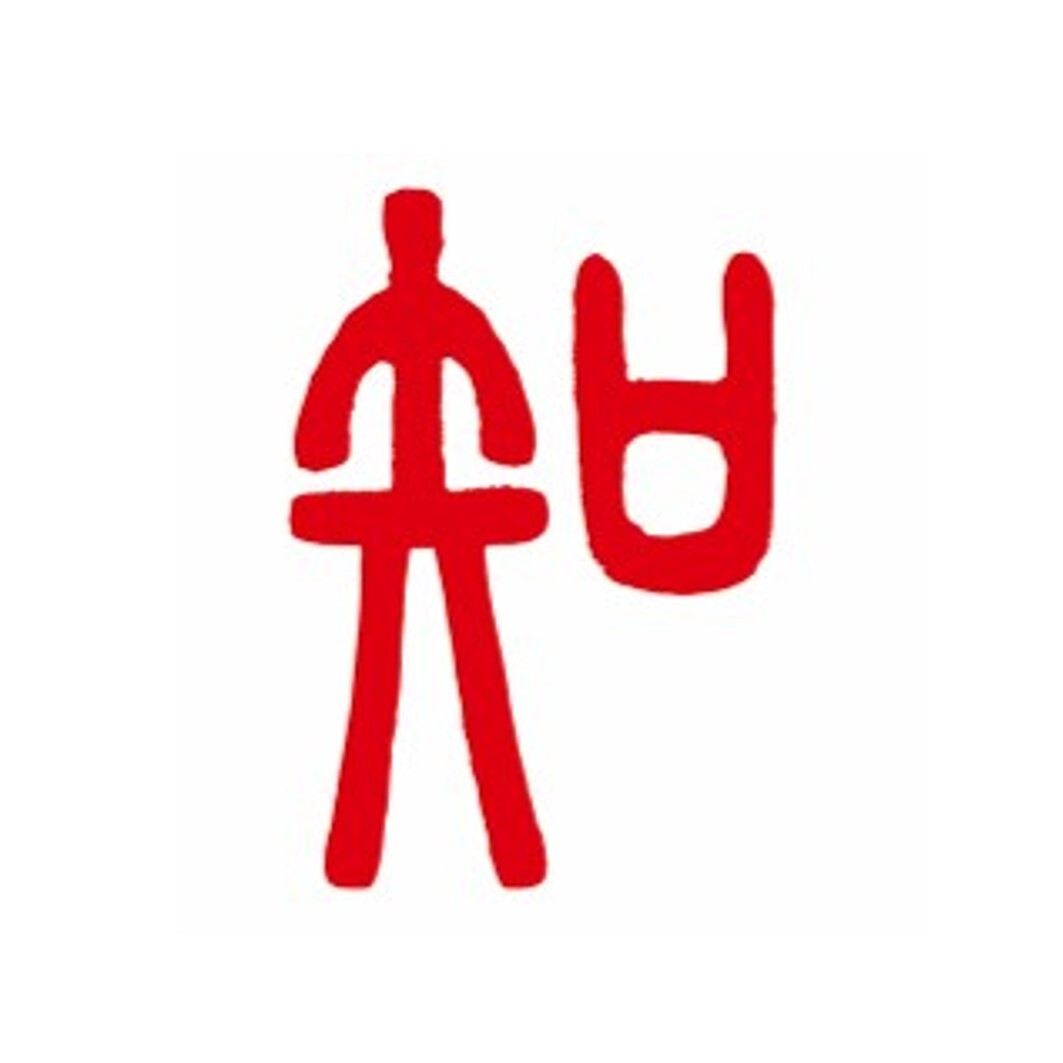
Author profile
Intage Inc
***
-

Editor profile
Intage Inc.
***
 Global Market Surfer
Global Market Surfer CLP
CLP